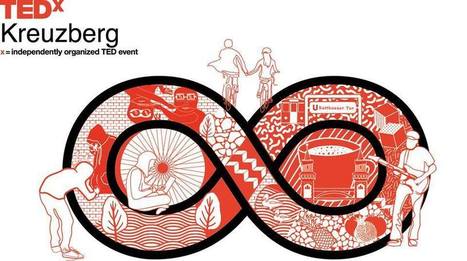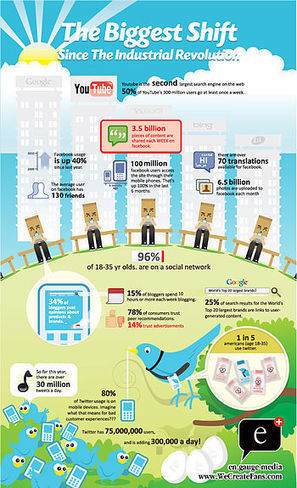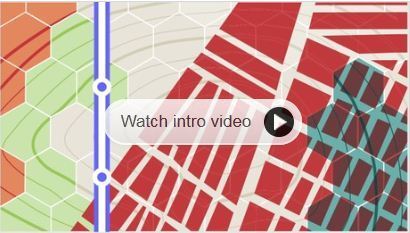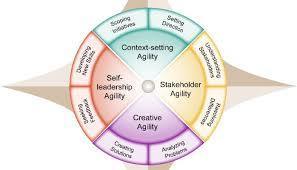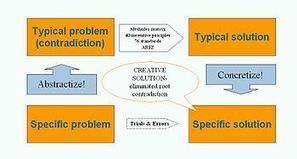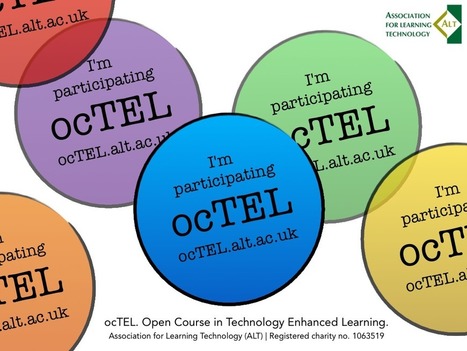 Your new post is loading...
 Your new post is loading...
Digital training solutions tend to be shorter in length. Micro-learning remains one of the main trends in the e-learning market. Micro learning consists of a series of short online learning bites of around 5 minutes in length, which can be consumed at a convenient time.
Via Carlos Fosca
More and more companies are realizing they must reinvent their cultures by infusing innovation into their DNA. Unlike startups that get to shape culture from scratch, established companies must transform existing norms, values, and assumptions in ways that inspire everyone to innovate — not just at the top of the organization, but at all levels. One company that’s making headway on that goal is CSAA Insurance Group (CSAA IG), one of the insurance companies affiliated with the 55 million-member American Automobile Association (AAA). With almost 4,000 employees, CSAA IG has embarked on a systemic approach to create a pervasive culture of innovation. The tactics being used by CSAA IG are all ones that leaders in other companies can apply to their own innovation culture change efforts.
Via The Learning Factor
"So, TEDx Kreuzberg happened, and I couldn’t possibly be more proud of the four speakers that stepped on that stage and gave it their best. I couldn’t be more ..."
Via Leona Ungerer
"In a connected world, leveraging the employees’ network and their own experiences is a very effective way to build a culture of learning ..." ©
Via Leona Ungerer
"Tablets have become a learning fixture in many K-12 classrooms. The quick access to information and capability to provide personalized learning are just a few of the reasons why teachers, ..."
Via Leona Ungerer
Program Objectives:
By the end of the program, participants will be able to:
Apply breakthrough leadership and communication techniques to drive busi...
Via Rami Kantari

|
Scooped by
juandoming
|
Join events and find things to do with Rami Kantari. Discover tech, film, music, sports, parties, business conferences, events & more near you.
Companies are expressing growing interest in using massive, open, online courses in their corporate training initiatives for rank-and-file workers, the Journal reports today. But winning over executives, who are accustomed to concierge services and in-person hobnobbing, might be a tougher feat for MOOC providers.
Via Peter Mellow

|
Scooped by
juandoming
|
"We are so into MOOCs now that it’s too much for me. Gotta apply Ockham’s Razor 2.0 to this stuff. At the Ed-Media conference, I attended a session by Sarah Schrire of Kibbutzim College of Education in Tel Aviv. In her discussion of Troubleshooting MOOCs, she noted the dificulties in determining her own direction in offering a MOOC in the “Stanford model” MOOCs versus the “connectivism” MOOCs. I found myself breaking it down into three categories instead.
Each type of MOOC has all three elements (networks, tasks and content), but each has a goal that is dominant.
Network-based MOOCs are the original MOOCs, taught by Alec Couros, George Siemens, Stephen Downes, Dave Cormier. The goal is not so much content and skills acquisition, but conversation, socially constructed knowledge, and exposure to the milieu of learning on the open web using distributed means. The pedagogy of network-based MOOCs is based in connectivist or connectivist-style methods. Resources are provided, but exploration is more important than any particular content. Traditional assessment is difficult. Task-based MOOCs emphasize skills in the sense that they ask the learner to complete certain types of work. In Jim Groom’s ds106 at UMW, the learning is distributed and the formats variable. There are many options for completing each assignment, but a certain number and variety of assignments need to be done to perform the skills. Similarly, our POT Certificate Class focuses on different topics for each week, and skills are demonstrated through sections on design, audio, video etc. in an effort to expose learners to many different formats and styles in online teaching. Community is crucial, particularly for examples and assistance, but it is a secondary goal. Pedagogy of task-based MOOCs tend to be a mix of instructivism and constructivism. Traditional assessment is difficult here too. Content-based MOOCs are the ones with huge enrollments, commercial prospects, big university professors, automated testing, and exposure in the popular press. Community is difficult but may be highly significant to the participants, or one can go it alone. Content acquisition is more important in these classes than either networking or task completion, and they tend to use instructivist pedagogy. Traditional assessment, both formative and summative, may be emphasized. Mass participation seems to imply mass processing." from source: http://lisahistory.net/
Via ghbrett, ikasnabar, Vladimir Kukharenko
Brandon Hall Group released this week The Shifting Workforce: Driving Development with Dynamic Learning Networks, a research paper that details how four leading companies are expanding their corporate learning environments to encompass structured knowledge sharing, collaboration, peer coaching, and experience-based connections.
Via Peter B. Sloep, manuel area
"We are so into MOOCs now that it’s too much for me. Gotta apply Ockham’s Razor 2.0 to this stuff. At the Ed-Media conference, I attended a session by Sarah Schrire of Kibbutzim College of Education in Tel Aviv. In her discussion of Troubleshooting MOOCs, she noted the dificulties in determining her own direction in offering a MOOC in the “Stanford model” MOOCs versus the “connectivism” MOOCs. I found myself breaking it down into three categories instead.
Each type of MOOC has all three elements (networks, tasks and content), but each has a goal that is dominant.
Network-based MOOCs are the original MOOCs, taught by Alec Couros, George Siemens, Stephen Downes, Dave Cormier. The goal is not so much content and skills acquisition, but conversation, socially constructed knowledge, and exposure to the milieu of learning on the open web using distributed means. The pedagogy of network-based MOOCs is based in connectivist or connectivist-style methods. Resources are provided, but exploration is more important than any particular content. Traditional assessment is difficult. Task-based MOOCs emphasize skills in the sense that they ask the learner to complete certain types of work. In Jim Groom’s ds106 at UMW, the learning is distributed and the formats variable. There are many options for completing each assignment, but a certain number and variety of assignments need to be done to perform the skills. Similarly, our POT Certificate Class focuses on different topics for each week, and skills are demonstrated through sections on design, audio, video etc. in an effort to expose learners to many different formats and styles in online teaching. Community is crucial, particularly for examples and assistance, but it is a secondary goal. Pedagogy of task-based MOOCs tend to be a mix of instructivism and constructivism. Traditional assessment is difficult here too. Content-based MOOCs are the ones with huge enrollments, commercial prospects, big university professors, automated testing, and exposure in the popular press. Community is difficult but may be highly significant to the participants, or one can go it alone. Content acquisition is more important in these classes than either networking or task completion, and they tend to use instructivist pedagogy. Traditional assessment, both formative and summative, may be emphasized. Mass participation seems to imply mass processing." from source: http://lisahistory.net/
Via ghbrett
"Learn how advances in geospatial technology and analytical methods have changed how we do everything, and discover how to make maps and analyze geographic patterns using the latest tools."
Via VaquerAna
|
##LEADERSHIP AGILITY AND RESILIENCE ##training ##course ##certificate ##dubai The ability of an organization to perform in new ambiguous situations by ... - Rami Kantari - Google+
Via Rami Kantari
Learning management systems (LMSs) have been around for nearly 30 years, and nearly every organization has one—or more—to manage their training and learning functions. But the truth is, LMSs were never designed to manage instructor-led training (ILT)—and ILT is likely one of your biggest training investments (representing 70 percent of training, according to Brandon Hall). So why do LMSs struggle to manage ILT, and what you can do about it?
Via Bobbi Dunham
Tech colossus, Microsoft, has released its AI software for developers everywhere, and it can even be run from a single laptop. Open-source deep learning software has the potential of opening the floodgates of technological revolution.
Via Nik Peachey
#Gamification Trend: Beyond the Badges: The Real Business Case for Gamification ..."
Via Leona Ungerer

|
Scooped by
juandoming
|
"Understanding changes and preferences in how your audience consumes information is the foundation of good advertising ..."
Via Leona Ungerer
Companies are expressing growing interest in using massive, open, online courses in their corporate training initiatives for rank-and-file workers, the Journal reports today. But winning over executives, who are accustomed to concierge services and in-person hobnobbing, might be a tougher feat for MOOC providers.
Via Peter Mellow
Meirc Marketing and Sales Training: Good marketing and sales are keys to a successful business. When done properly marketing produces leads, sales and happy customers that will boost your brand’s equity. While marketing focuses on strategies that can measure and improve your reach and promotional efforts, sales relies on effective planning skills and interpersonal interactions. Whether your aim is to market or sell, the programs in our Marketing and Sales category will help you optimize your results. Participants who attend any of these programs will acquire knowledge and skills in competencies approved and adopted by leading marketing and sales professionals around the world. From developing strategic marketing plans to learning techniques to increasing success rates and profitability, Meirc’s Marketing and Sales category covers it all. Let us help you make a difference and stand out from the crowd! For a list of suggested programs, please refer to the schedule below or contact us for more information.
Via Rami Kantari
It is easy to lecture on soft skills and then for students to pass a test showing that they have learned the material. But will behavior really change as a result of the lecture and testing? Do role plays result in behavioral change?
Via Christopher Pappas
"Future Trends in Technology and Education is a monthly report. It surveys recent developments in how education is changing, primarily under the impact of digital technologies. Its purpose is to help educators, policy-makers, and the public think about the future of teaching, learning, research, and institutions. Every month FTTE aggregates recent developments, checking them against previously-identified trendlines. As certain trends build in support and significance, the report recommends watching them for future impact. FTTE also notes trends which appear to be declining in significance." -- from source: http://bryanalexander.org/
Via ghbrett
|



 Your new post is loading...
Your new post is loading...







